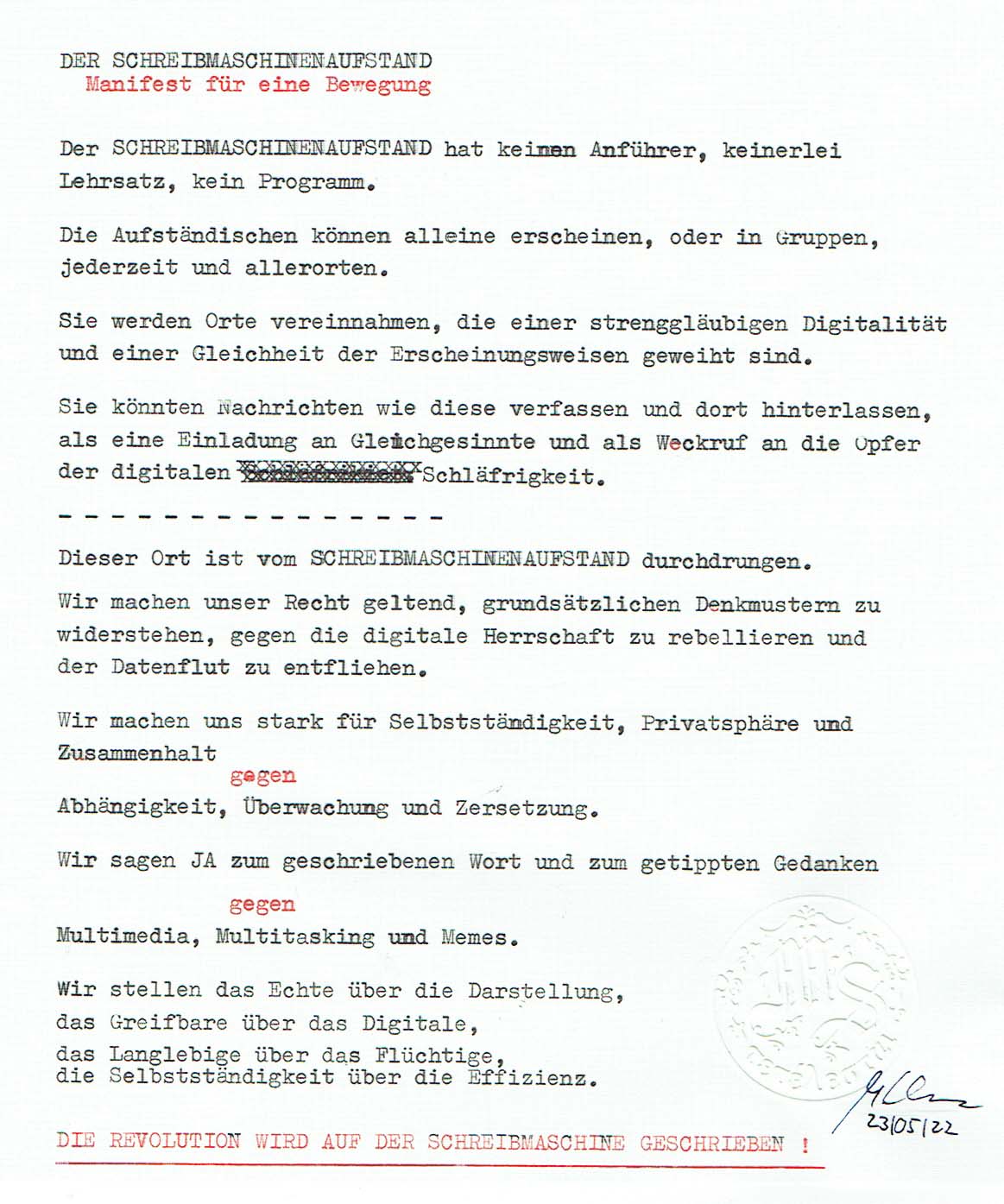Pages
Friday, June 24, 2022
Samples of Greek handwritten and typewritten text
Saturday, June 18, 2022
Could the ancient Greeks have built a typewriter?
I'm sure that's the burning question on the mind of every reader of this blog.
And I have a confident answer: yes.
I already thought so, based on my amateur acquaintance with the history of technology, but I'm still more convinced after visiting the Kotsanas Museum this afternoon—a lovely little institution in a prosperous neighborhood of Athens that features reconstructions of ancient Greek machines, musical instruments, armor, and games.
Greek philosophers and mathematicians were driven by the desire to understand, but they also wanted to construct devices that could be amusing or useful. Plato reportedly invented this water-driven alarm clock:
Other highlights of the museum (not in chronological order) include this more sophisticated hydraulic clock invented by Ktesibios (3rd c. BC) ...
... a pantograph (for miniaturizing drawings) invented by Heron (1st c. AD) ...
But what about the scholars of Alexandria, who had plenty of papyrus and wrote with ink on scrolls? Didn't one of them ever dream about a typewriter?
Wednesday, June 8, 2022
Sunday, June 5, 2022
Athens typewriter safari
I've been to Athens before. Athens, Ohio, that is. But there's also an Athens, Greece! And this is my first visit.
The city is both magnificent ...
... and shabby.
Of course, as promised (and as I can't help doing), I am looking for γραφομηχανές. My first sighting was at the Stoa of Attalos, a reconstructed building from the Roman period that houses the Museum of the Ancient Agora.
The other tools used by archaeologists in the '30s are also interesting. (The Leroy Lettering device was very popular in its day, as I found out with a quick check of eBay.)
I had Sunday afternoon free, so I headed for the Monastiraki district, which houses a bustling flea market. (Here's a former Ottoman mosque, with the Acropolis in the background, and busy shops at its foot.)

Surely some palaiopoleion would have typewriters?
Some shops and dealers do have old technology. In Greece as in the US, you need to find the sweet spot between cheap modern junk and fancy antique furniture.
Aha! An L.C. Smith — with QWERTY keyboard.
A well-worn Adler with the French AZERTY layout.
Finally, a machine that types in Greek! This is an Erika 10 from East Germany.
And here's a wide-carriage Siemag from West Germany.
Both the Erika and the Siemag feature a Greek keyboard based on QWERTY that is also capable of typing in capital Roman letters, since the Roman capitals that don't match Greek ones are available on the top row of the keyboard when you shift.
Here's a Continental portable, lacking some body panels, with a different Greek/Roman layout, based on AZERTY.
This Oliver (no. 9?) has a slightly different AZERTY-based Greek keyboard.
As cool as the Oliver is, I think this is still cooler. This Adler has four characters per key and is capable of typing both Greek and Roman capital and lowercase letters. The layout is a really weird, but still QWERTY-based concept.
There is no way that I'll be lugging a huge, heavy, rusty Adler home with me, but at least photos are portable and free! I hope you've enjoyed them.









































